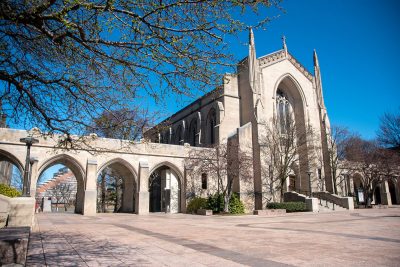
Boston University was forced to develop a financial recovery plan following a $52 million loss during the global COVID-19 pandemic, according to an email from President Robert Brown to faculty and staff April 17.
Brown detailed the facets of the plan in the email, which include a continued freeze on hiring staff, nonessential capital and similar projects, as well as a freeze on current faculty and staff salaries through the fiscal year 2021.
Brown and Jean Morrison, university provost and chief academic officer, will take a 20 percent pay decrease, while all college deans and vice presidents will see a 10 percent pay decrease.
However, BU will continue to hire faculty through the fiscal year 2020 and reevaluate Sept. 1 whether they will do the same for the fiscal year 2021, Brown wrote.
Colin Riley, a BU spokesperson, wrote in an email that there are possibly more changes to come for the university.
“What happens will be determined largely by what we learn through the coming months and year with regard to the pandemic and its impact on campus operations,” Riley wrote.
He also wrote that these decisions were made to benefit BU in the long-run, despite the short-term costs.
“Staff salary increases are generally implemented at the beginning of the calendar year,” Riley wrote. “The steps taken by the administration, including the salary reductions for the President, Provost, Deans and Vice Presidents are designed to protect jobs.”
Riley wrote that BU is closely monitoring the pandemic and planning ahead in hopes of returning to campus for the Fall semester.
“Ideally, the plan means in-person, on-campus academic, residential and business operations are back as soon as possible,” Riley wrote.
Brown wrote in his email that further planning is contingent on forthcoming information about enrollment.
“The overall status of our Fiscal Year 2021 budget will only be clear when we have definitive plans for the opening of our campus and better projections for our enrollments in the summer and fall,” Brown wrote. “In all likelihood, we will not have this information until June. We will make decisions as soon as possible.”
William McKeen, a professor in the College of Communication and chair of the journalism department, wrote in an email that the decisions must reflect circumstances accurately.
“The staff pay freeze won’t affect my department horribly, though I think one of the greatest strengths of this university is its excellent staff, and I hate to see staff members hurt in any way,” McKeen wrote. “The IT staff, the advising staff and the department administrators have helped get students and faculty through this horrible period. But this is a once-a-century medical crisis and, under this plan, the administration is taking a significant pay cut.”
Christophor Cavalieri, an associate film and television professor in COM, whose salary was affected by the pandemic, wrote in an email that the university is handling the situation as best they can.
“There are numerous challenges ahead,” Cavalieri wrote, “some still unknown, but this is when leadership’s vision, planning and communication with the community can make a significant difference in shortening the time it takes to prevail. BU will prevail.”
Cavalieri wrote that now, a contingency plan is “the new norm,” and that thinking forward is the right thing to do.
“Navigating a crisis that’s evolving in real-time is about executing the immediate plan, contingency planning, and planning for the future,” Cavalieri wrote. “The university is endeavoring to move beyond the crisis. It has to, just as we all have to.”






























































































































Jamar Pinnell • Apr 29, 2020 at 11:14 am
thanksgiving 2019 nfl
Christine Yoho • Apr 28, 2020 at 11:30 pm
thanksgiving 2021